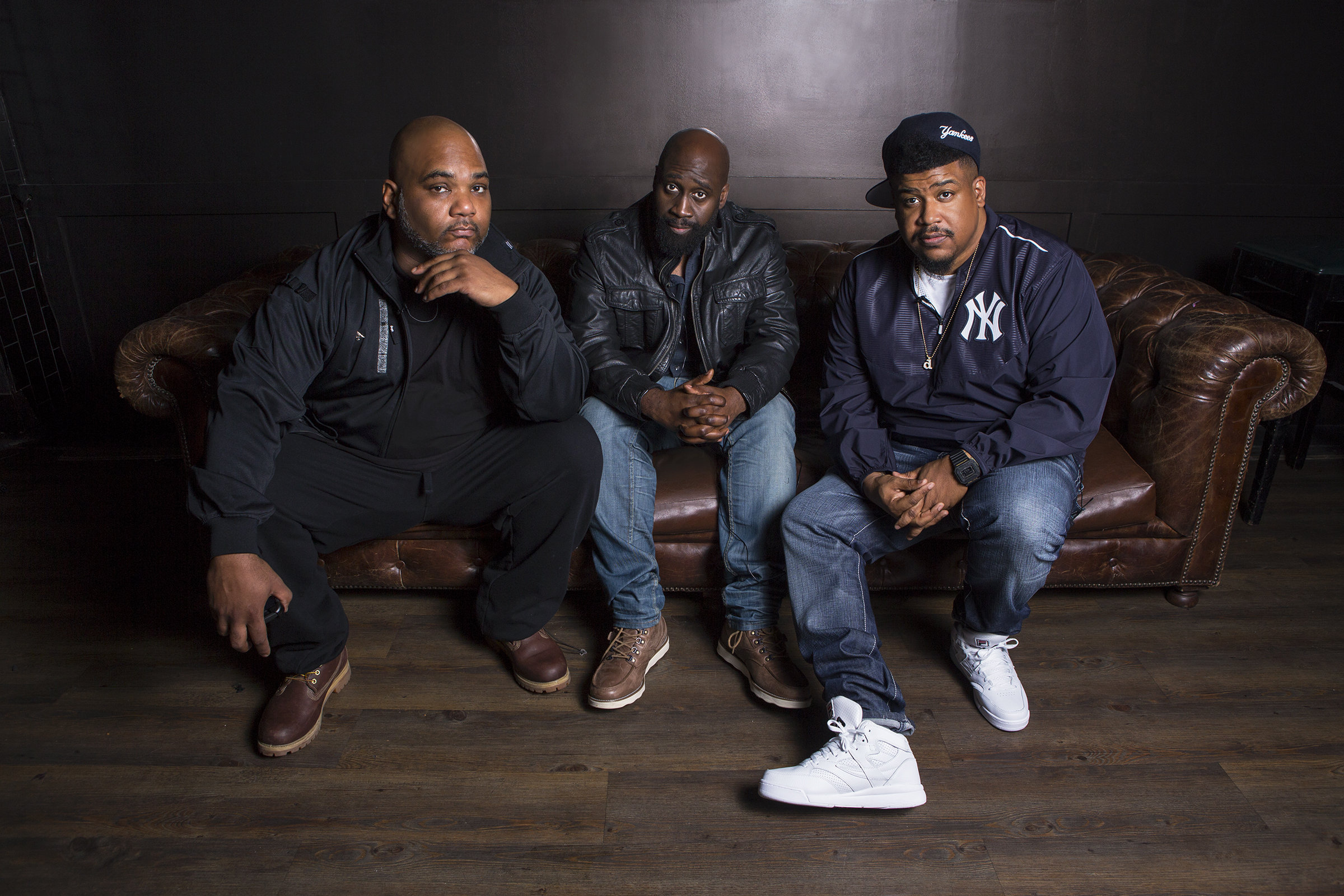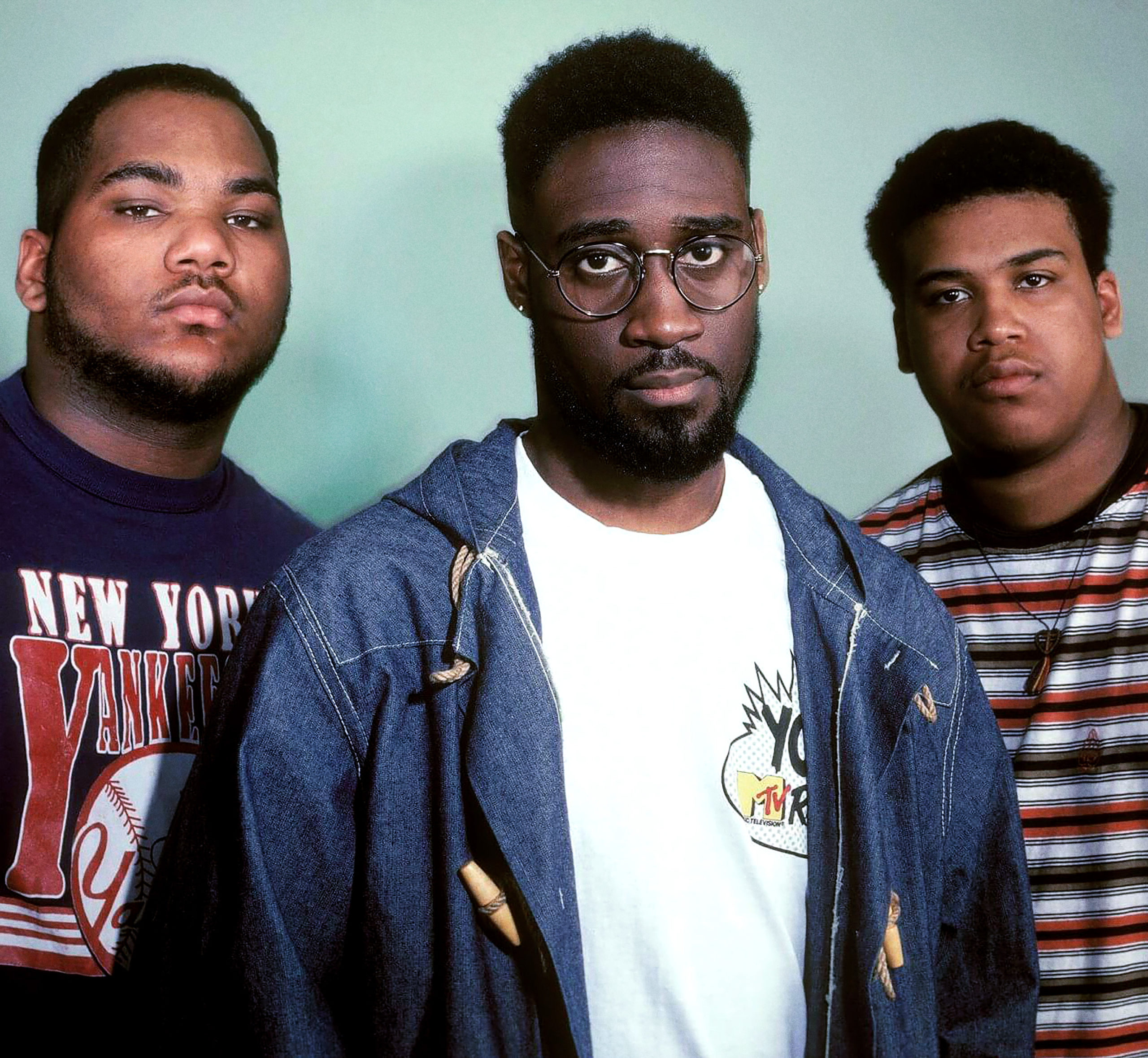Biography
De La Soul is back—but did they ever really leave? After delivering their seminal debut 3 Feet High and Rising in 1989 with the production genius of Prince Paul, the New York City-bred trio of Posdnuos (Pos), Dave and Maseo went on to further impact Hip Hop culture with five more groundbreaking albums: De La Soul Is Dead (1991), Buhloone Mindstate (1993), Stakes Is High (1996), Art Official Intelligence: Mosaic Thump (2000) and AOI: Bionix (2001). But once the digital age exploded in the late ‘90s, De La Soul’s celebrated catalog was unavailable to stream. As the decades passed, the tight-knit group forged ahead anyway—touring the world, connecting with their adoring fanbase and making music on their own terms. Following 2004’s The Grind Date, De ...
De La Soul is back—but did they ever really leave? After delivering their seminal debut 3 Feet High and Rising in 1989 with the production genius of Prince Paul, the New York City-bred trio of Posdnuos (Pos), Dave and Maseo went on to further impact Hip Hop culture with five more groundbreaking albums: De La Soul Is Dead (1991), Buhloone Mindstate (1993), Stakes Is High (1996), Art Official Intelligence: Mosaic Thump (2000) and AOI: Bionix (2001). But once the digital age exploded in the late ‘90s, De La Soul’s celebrated catalog was unavailable to stream. As the decades passed, the tight-knit group forged ahead anyway—touring the world, connecting with their adoring fanbase and making music on their own terms. Following 2004’s The Grind Date, De La Soul took a 12-year hiatus from making albums but returned with the Grammy Award-nominated …And The Anonymous Nobody in 2016. With the demand for unreleased De La Soul music palpable, the cry for access to the other six albums grew louder. Unfortunately, De La Soul was stuck riding a roller coaster of stalled negotiations, dashed hopes and dead-end conversations with their old label, and the group nearly gave up.
“We have lived without the music up for long, these six albums haven’t been up—ever,” Pos says. “We got used to knowing they weren’t up.” But in June 2021, Tommy Boy Music was acquired by Reservoir, giving De La Soul’s catalog a new home. Beginning March 3, 2023—the 34th anniversary their aforementioned debut—the six missing albums will finally be available to stream, which Pos calls a “sigh of relief.” Incredibly, one thing never changed throughout the exhaustive ordeal: the group’s commitment to each other. Now one of the longest-running Hip Hop groups to date, De La Soul’s life-long bond has helped them persevere even with the difficult challenges they faced.
“We were put to the test,” Pos continues. “But we always saw ourselves as brothers. Not one of us ever had this goal to win by ourselves. We viewed ourselves as a unit that moves together. Even with that said, we’re human. There were times where Dave got on my nerves or I got on his nerves, or I didn’t want to talk to Mase for a few weeks. But the overwhelming love we have for each other and love we have for this creative business we’ve built, it’s very special. Things, at times, can feel restrictive. But that’s what families do, they figure it out and work things out.”
The arrival of De La Soul’s catalog pairs perfectly with the 50th anniversary of Hip Hop, a genre and culture they impacted forever with the implementation of innovative samples into their music. From Hall and Oates and Beastie Boys to Steely Dan and The Turtles, their unadulterated love of music illuminates everything they do.
“I think the relationship with our fans is a pretty natural relationship,” Maseo says. “First and foremost, we are fans ourselves. Before I can say I was an artist, DJ or producer, I was a fan of this first. And I think that never left my spirit.”
That spirit helped usher 3 Feet High and Rising into the Library of Congress’ National Sound Recording Registry in 2011, an honor reserved solely for albums with cultural and historical significance. De La Soul once again pushed the creative envelope for …And The Anonymous Nobody, enlisting a live band to perform every single note. The album, released a full 27 years after the group’s debut, featured appearances by artists such as The Talking Heads’ David Byrne, Little Dragon, Justin Hawkins of the Darkness, Snoop Dogg, Usher, Estelle and Gorillaz’s Damon Albarn, lending it both a vintage De La Soul sound and freshness that simultaneously spoke to the younger generation.
As Pos notes, “We’ve noticed over the past several years of tour like, ‘Wow, there’s a father here with his child who also is here with their child.’ We’re generational. To me, there’s nothing more gratifying than that. That means something. That’s telling about a group. What we were doing wasn’t just stuck to that time.”
As iconic songs such as “The Magic Number” illustrate—which found new life as part of the Spiderman: No Way Home film in 2021—De La Soul continues to resonate with a diverse population of people.
“We really naturally been that group for everyone,” Pos says. “It was never about we’re just here for this community, that community, this set of people or these certain fans of Hip Hop culture. We see music as music. We’ve been very resilient, even being a group that didn’t have our music up [on streaming platforms]. We still had these beautiful opportunities through young people finding out about us through a commercial or Spider-Man. Now that it can all be there for people to gravitate to, I’m really happy about that.”
Even with all of De La Soul’s accolades, Maseo is emphatically proud of their longevity. He concludes, “This has always been something that’s been dear to me. I think it’s important to say now, in this day and age—fuck all the accolades. The most important accolade is three Black men staying together.”





